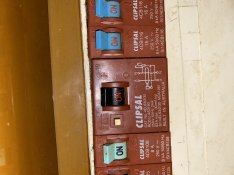Conrad
New elf
- Joined
- Nov 17, 2021
- Messages
- 27
Probably the wrong place to post this but not sure
Does anyone know why my power would be tripping while my show is static as in not powering any lights only power supplies.
I have power consumption monitors on all my power point connections and im only using like 2 amp while static on my heaviest loaded powerpoint and no where near my 25 amp limit for the entire circuit even on full white.
Only thing I can think of is possibly my heat pump shares the same circuit and is pushing it over the edge
I'm no electrician so go easy on me haha
Does anyone know why my power would be tripping while my show is static as in not powering any lights only power supplies.
I have power consumption monitors on all my power point connections and im only using like 2 amp while static on my heaviest loaded powerpoint and no where near my 25 amp limit for the entire circuit even on full white.
Only thing I can think of is possibly my heat pump shares the same circuit and is pushing it over the edge
I'm no electrician so go easy on me haha



